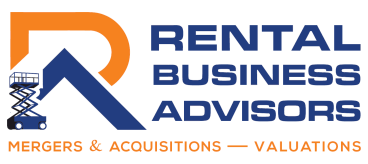We see many companies operate on the “cash” basis of accounting. When using the cash basis, there are no accounts receivable or accounts payable. Revenue is recognized when payment is received and expenses are recognized when paid. The cash basis, by its very nature, is not reliable for management analysis and is frowned upon by acquirers and third party lending sources. Here are just a few examples of how the cash basis skews financial results:
- Payments for annual expenses like property taxes or insurance are paid all in one month. That month will show a big loss while other month’s expenses are understated because they do not reflect a proportionate monthly share of property taxes or insurance.
- A company’s bi-weekly payroll is paid on the first of the month. The previous month’s payroll expense is understated while the current month is overstated.
- You have a big job this month that requires sub-rentals and/or sub-contractor services which you have to pay in advance. Your customer does not pay for 60 days. The current month is going to show a big loss and 60 days from now you will show an inflated profit.
These are just a few of many examples. We have seen companies showing significant improvement in their revenues, however, the improved results take several months to show up on their cash basis financial results because collections can occur over a 60 to 90 day period. This can be a significant impediment if you are looking to sell your business and your financial statements do not yet reflect improving results.
We understand that many smaller rental companies use the cash basis of accounting for tax purposes. We recommend that all rental companies use the accrual method for book purposes thus allowing consistent measurement of results by management. A simple set of journal entries by your accountant at year-end can accomplish a conversion back to cash basis for income tax purposes. Keeping a different set of books for book and tax purposes is a standard, legal and accepted method (including for Generally Accepted Accounting Principles–GAAP) for many rental companies. The accrual basis of accounting is simple; recognize revenues as they are earned or billed and “match” your expenses to the period in which they relate to. Your financial results using the accrual method will better reflect your actual results and you can manage your company a lot more effectively .


